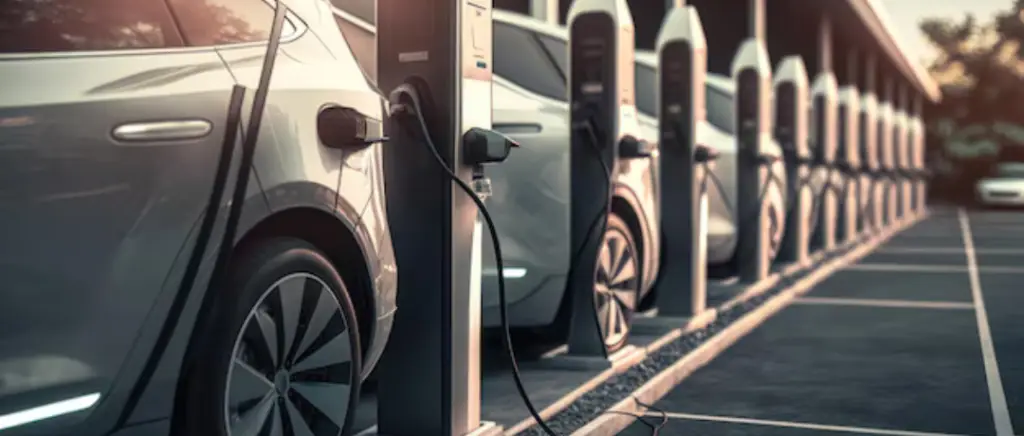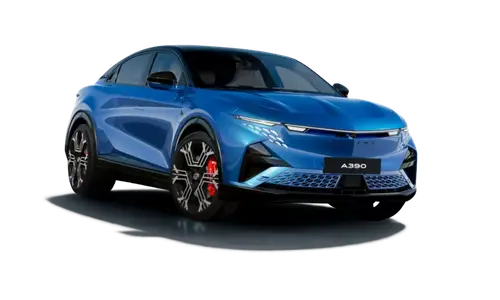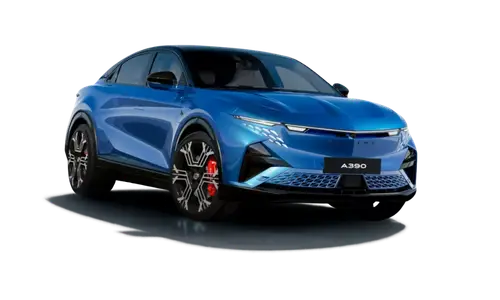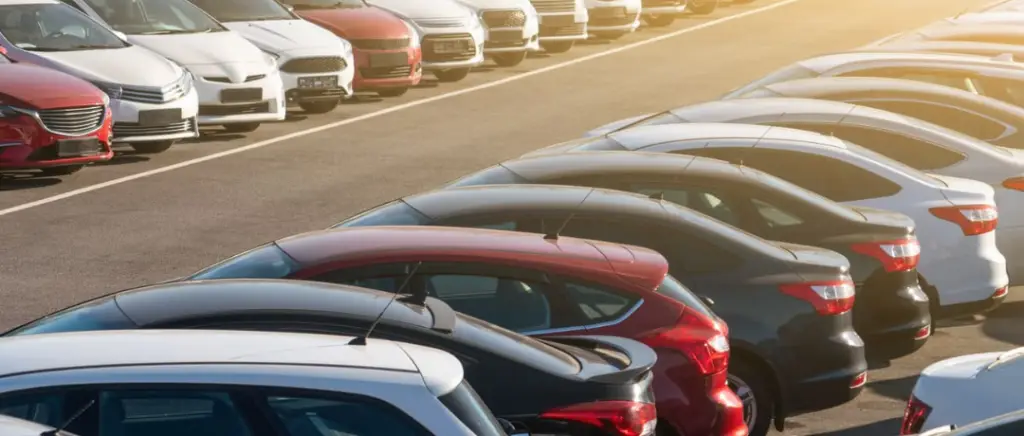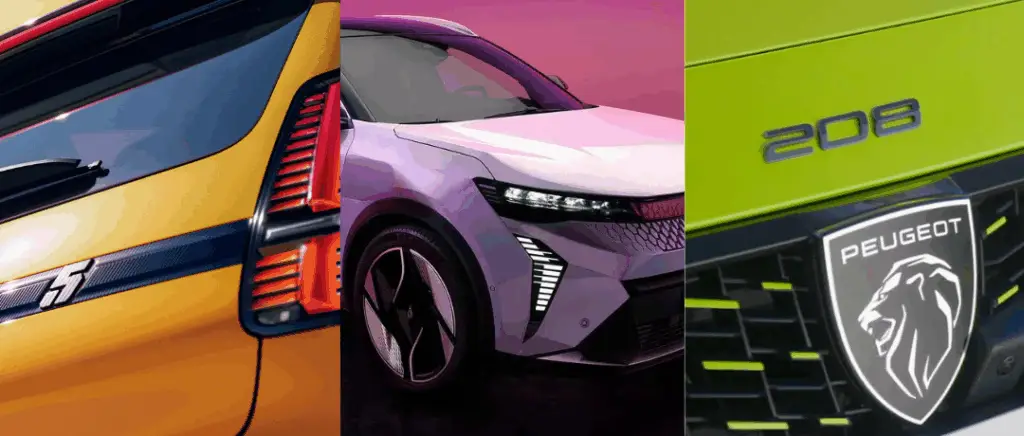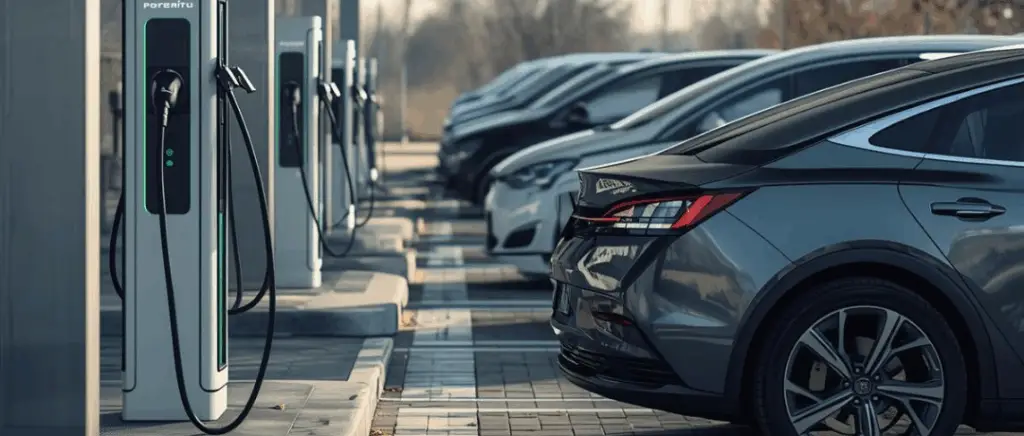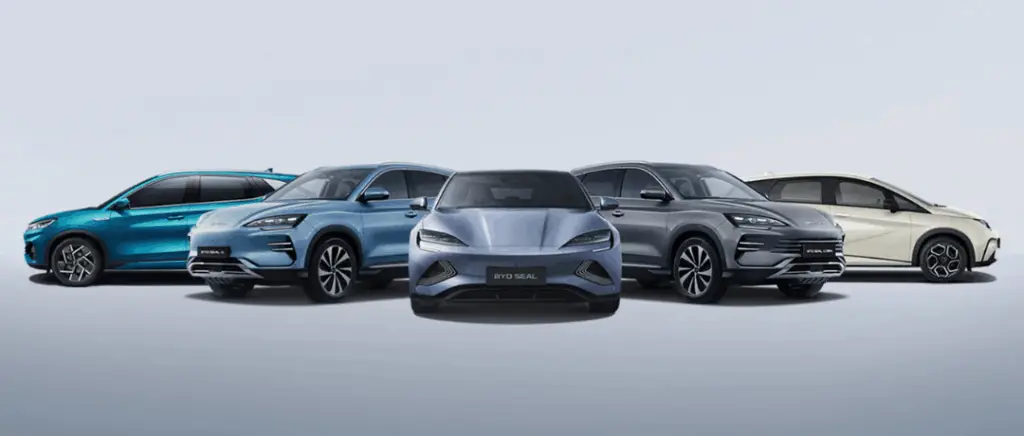What tax measures make electric cars attractive to the self-employed and very small businesses?
The taxation of electric vehicles in 2025 offers substantial advantages for the self-employed and very small businesses, transforming the landscape of professional mobility. Total exemption from Company Vehicle Tax (CVT) for electric cars represents a significant saving, and is particularly attractive for small businesses that are sensitive to tax optimisation. This measure, combined with advantageous depreciation and the possibility of reclaiming VAT on energy, considerably improves the return on investment (ROI) of electric fleets.
For professionals faced with the challenges of energy transition and cost control, the adoption of electric vehicles appears to be a practical and financially advantageous solution. The depreciation ceiling has been raised to €30,000 for vehicles emitting less than 20g of CO2/km, enabling a higher tax deduction, thereby reducing the total cost of ownership (TCO). What's more, 100%'s recovery of VAT on the electricity used for recharging provides additional leverage for optimising expenses linked to business mobility.
Exemption from the new taxes on company vehicles ( TVS )
The purchase of an electric vehicle represents a major advantage for the self-employed and very small businesses in terms of tax optimisation. Exemption from the Taxe sur les Véhicules de Société (TVS), a significant expense for companies, is a significant financial advantage. This French government incentive encourages the adoption of cleaner mobility solutions, while reducing operating costs for professionals.
Exempting electric vehicles from VAT means that companies can make substantial savings on their car budget. These funds can be reinvested in other strategic areas for the company, such as employee training, developing new products or services, or improving the customer experience.
From a purely accounting point of view, the absence of TVS means a reduction in tax charges and an improvement in the company's net profit. This financial optimisation is all the more relevant in a competitive economic climate, where every euro counts.
What's more, the exemption from TVS for electric vehicles is part of a CSR (Corporate Social Responsibility) approach. By opting for electric mobility, self-employed professionals and very small businesses are helping to reduce their carbon footprint. carbon footprint and improve air quality, strengthening their brand image with customers and partners.
Depreciation and deduction of expenses
The purchase of an electric car represents a substantial initial investment for self-employed professionals and very small businesses. However, it is crucial to consider depreciation as a strategic financial lever. Unlike combustion-powered vehicles, electric cars benefit from more favourable depreciation rates, reducing the company's tax base.
What's more, certain charges linked to the use of electric vehicles, such as charging points or maintenance costs, can be deducted from tax, thereby optimising the total cost of ownership (TCO) and improving the return on investment (ROI). It is therefore essential to carefully analyse the depreciation and tax deduction arrangements in order to maximise the financial benefits of adopting a fleet of electric vehicles.
VAT recoverable under certain conditions
Reclaiming VAT on electric cars is a significant financial lever for the self-employed and very small businesses. Unlike internal combustion vehicles, where VAT is generally excluded, companies subject to VAT can potentially reclaim this tax on the purchase of an electric vehicle.
Conditions and limitations
However, it is crucial to note that this recovery is subject to conditions and limitations. The main condition is that the vehicle must be used exclusively for the company's business activity. This means that a vehicle used for both personal and business purposes will not be eligible for VAT recovery.
What's more, certain categories of electric vehicle may be excluded from this scheme. It is therefore essential to find out exactly what the eligibility criteria are from the relevant authorities or a chartered accountant.
Optimisation and benefits
For the self-employed and very small businesses, VAT recovery represents an opportunity to optimise their car budget. By reducing the total cost of vehicle ownership, this tax measure makes electric cars more attractive financially and helps to improve the return on investment.
Challenges and solutions
Although reclaiming VAT offers an undeniable financial advantage, businesses need to be aware of the potential challenges. The complexity of tax regulations and the need to justify the business use of the vehicle can present obstacles.
To overcome these challenges, it is advisable to put in place rigorous management of proof of use of the vehicle, to keep abreast of changes in tax legislation and to seek the assistance of a chartered accountant to optimise VAT recovery.
In short, recovering VAT on electric cars represents a significant financial advantage for the self-employed and very small businesses. By complying with the conditions and implementing rigorous administrative management, businesses can optimise their car budget and improve their profitability.
See also our article :
Lower operating costs and long-term savings
The adoption of electric vehicles by the self-employed and very small businesses is not simply a question of going green. It represents a real opportunity to optimise operating costs and make substantial savings in the long term. In fact, the total cost of ownership of an electric vehicle can be significantly lower than that of a traditional car. thermal vehicle equivalent. This is due to a number of key factors, which we will detail below, including lower energy costs, reduced maintenance requirements and access to specific financial assistance.
Much lower energy costs than fuel
One of the most significant financial advantages of electric vehicles is the cost of energy. Recharging a battery Electricity generally costs much less than filling a petrol or diesel tank. This price differential, which can vary according to fluctuations in the energy market and the tariffs applied, translates into substantial savings over the long term, particularly for professionals who drive a lot.
Let's take a concrete example:
a very small delivery business that travels an average of 200 km a day. With an internal combustion vehicle consuming 8L/100km at €1.80/L, the daily fuel cost is €28.80. By comparison, an equivalent electric vehicle consuming 18 kWh/100km recharged at €0.20/kWh will cost just €7.20 per day. That's a saving of more than €20 a day, or more than €500 a month!
It's important to note that the cost of electricity can vary depending on where and when you recharge. Companies can optimise their expenditure by giving priority to charging during off-peak hours, by installing on-site charging points powered by renewable energy sources (solar panels, for example) or by negotiating preferential rates with electricity suppliers.
Less maintenance, more profitability
One of the often underestimated advantages of electric vehicles is the significant reduction in maintenance costs. Unlike combustion-powered vehicles, electric cars do not require regular oil changes, oil filters or timing belts. In fact, their simpler mechanics, with fewer moving parts, considerably reduce wear and tear and the risk of breakdowns.
Substantial savings over the long term
This reduction in maintenance requirements translates into substantial savings for professionals. Garage bills are lower, and the vehicle is less likely to be immobilised for maintenance. This is a significant advantage for self-employed professionals and very small businesses, for whom every euro counts.
A positive impact on profitability
For companies, reducing maintenance costs is a key factor in profitability. By reducing the costs associated with maintaining their vehicle fleetIn this way, they improve their profit margins and optimise their return on investment.
Tips for optimum maintenance
Although the maintenance of an electric vehicle is generally less demanding, it is still important to follow a few recommendations:
- Entrust maintenance to a qualified professional: Even if these operations are less frequent, it's crucial to have maintenance carried out by a specialist in electric vehicles.
- Regularly check key elements: Tyres, brakes, battery... certain components require special attention to ensure the safety and longevity of your vehicle.
- Anticipating needs : By planning servicing and paying attention to the vehicle's signals, you can prevent breakdowns and optimise maintenance.
In short, the reduction in maintenance costs is a major advantage of electric vehicles for the self-employed and very small businesses. It contributes to improving the profitability of their vehicle fleet, and is a strong argument in favour of adopting this technology.
Purchasing aid and subsidies for businesses
The initial investment in an electric vehicle is often higher than for a combustion vehicle. However, self-employed professionals and very small businesses can benefit from considerable financial support thanks to the many grants and subsidies available.
A constantly changing incentive landscape
The French government, local authorities and a number of other bodies offer purchase subsidies specifically for business customers. These financial incentives are designed to encourage the adoption of electric vehicles and facilitate the energy transition for businesses.
Examples of grants and subsidies :
- Conversion premium additional aid for scrapping an old polluting vehicle.
- Exemption from company car tax (TVS) A tax incentive for businesses.
- Local aid Electric vehicles: some regions and local authorities offer additional subsidies for the purchase of electric vehicles.
Optimising your investment through grants
This financial support can considerably reduce the cost of acquiring an electric vehicle and speed up the return on investment for companies. So it's vital to keep abreast of current schemes and to study the conditions of eligibility carefully.
Tips for maximising aid :
- Contact the relevant organisations ADEME, tax departments, local authorities, etc.
- Compare the different offers The amounts and conditions of assistance may vary.
- Putting together a solid file Gather all the supporting documents you need to substantiate your claim.
Grants and subsidies for the purchase of electric vehicles are an important financial lever for the self-employed and very small businesses wishing to acquire an electric vehicle. By taking advantage of these schemes, businesses can optimise their investment and accelerate their transition to more sustainable and cost-effective mobility.
Use the TCO simulator to calculate the total cost of ownership of your car and compare it with its internal combustion equivalent.
An ecological asset and a positive image
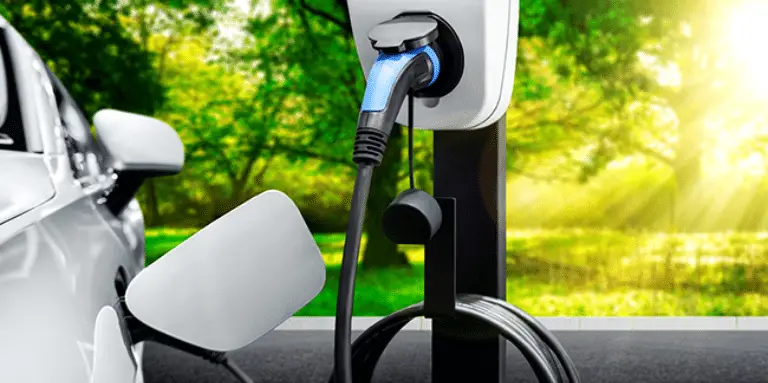
Electric vehicles are not only a solution for reducing operating costs, they also represent an ecological asset and an opportunity to improve the brand image of the liberal professions and very small businesses. In a context where environmental responsibility is increasingly valued by customers and partners, the adoption of electric vehicles can be a real competitive advantage.
A reduction in the company's carbon footprint
One of the main advantages of electric vehicles is their contribution to reducing a company's carbon footprint. Unlike internal combustion vehicles, which emit greenhouse gases during use, electric vehicles do not.
A measurable environmental impact
For self-employed professionals and very small businesses concerned about their environmental impact, choosing electric vehicles is a practical way of reducing their CO2 emissions. This eco-responsible approach is part of a sustainable development approach and contributes to the fight against climate change.
An asset for communication
Reducing the carbon footprint can also be promoted in a company's communications. By demonstrating its commitment to the environment, it strengthens its brand image and sets itself apart from the competition.
Tools to measure and optimise
There are now tools and methods for measuring and monitoring the environmental impact of a fleet of vehicles. Companies can thus quantify the benefits of their transition to electric vehicles and identify areas for improvement to optimise their environmental performance.
Tips for a successful transition
- Analysing the company's needs : Before switching to electric vehicles, it's important to assess your company's mobility needs and choose the right vehicles.
- Set up a recharging infrastructure : Installing charging points in the workplace or at home makes it easier to use electric vehicles and optimises their use. autonomy.
- Raising employee awareness: Involving employees in the energy transition process contributes to its success and strengthens the company's commitment.
In short, reducing the carbon footprint is a major advantage of electric vehicles for the self-employed and very small businesses. By adopting this sustainable mobility solution, businesses are helping to protect the environment and strengthen their brand image.
A commercial argument and an eco-responsible image
Beyond the environmental aspect, the adoption of electric vehicles can be a real commercial advantage for the self-employed and very small businesses. Indeed, displaying an eco-responsible image has become an important criterion of choice for many customers and partners.
Differentiate yourself from the competition
In an increasingly competitive market, a commitment to sustainable development can be a major differentiating factor. By opting for electric vehicles, companies can demonstrate their awareness of environmental issues and strengthen their credibility with their customers.
Attracting committed customers
More and more consumers are sensitive to the environmental impact of the businesses they choose. By using electric vehicles, self-employed professionals and very small businesses can attract environmentally conscious customers and retain their existing customers.
Enhancing your brand image
The use of electric vehicles can be integrated into a company's communication strategy. By communicating their actions in favour of sustainable development, companies improve their brand image and strengthen their reputation.
Concrete examples of use
- Placing the company logo on electric vehicles for greater visibility when travelling.
- Highlight the use of electric vehicles in communication media (website, brochures, social networks, etc.).
- Take part in events promoting sustainable mobility to meet potential customers and partners.
The adoption of electric vehicles offers self-employed professionals and very small businesses a competitive advantage by reinforcing their eco-responsible image. By integrating this dimension into their commercial strategy, businesses can attract new customers, retain existing ones and improve their reputation.
Sustainable mobility facilitated by infrastructure
Adopting sustainable mobility with electric vehicles is becoming increasingly accessible thanks to the rapid development of recharging infrastructures. Far from being a hindrance, EV recharging is gradually becoming part of business habits, offering flexibility and practicality.
A fast-expanding recharging network
The network of public charging points is expanding across the country, enabling people to recharge their vehicles at work, in public car parks, shopping centres and on major roads. Mobile applications and dedicated web platforms make it easy to locate available charging points and plan journeys.
Charging solutions for businesses
Companies can also install charging stations on their sites, offering a practical service to their employees and visitors. This approach reinforces the company's eco-responsible image and helps to improve employee satisfaction.
Optimising recharging for greater profitability
Electric vehicle charging can be optimised to minimise costs and maximise efficiency. Recharging management solutions enable recharging to be scheduled according to off-peak times and energy consumption to be monitored.
Tips for effective recharging :
- Identify charging points close to workplaces and regular routes.
- Choose a recharging solution that suits your company's needs and budget.
- Adopt eco-responsible driving to optimise the vehicle's range.
The development of recharging infrastructures is making it easier for the self-employed and very small businesses to adopt sustainable mobility. By integrating electric vehicles into their travel strategy, businesses can benefit from a practical, economical and environmentally-friendly solution.
Which electric car models are best for the self-employed and very small businesses?
The electric car market today offers a wide range of models tailored to the specific needs of the self-employed and very small businesses. From compact models for urban travel to saloons and SUVs offering comfort and range for long journeys, not forgetting electric vans for tradespeople, it's essential to choose the right vehicle for your business and your needs. This guide will help you see things more clearly and make the best choice for your business.
Electric city cars: ideal for urban travel
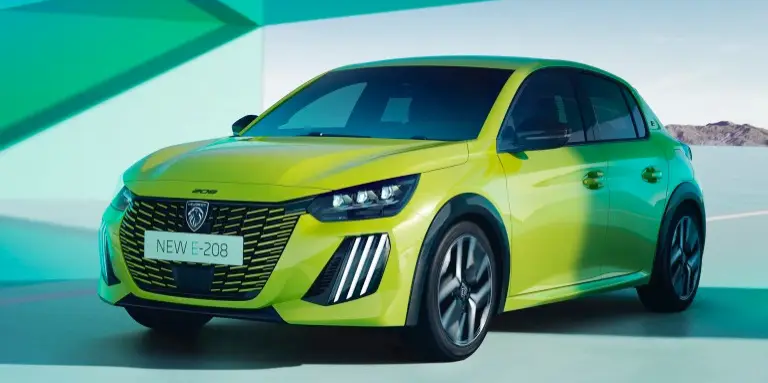
For self-employed professionals and very small businesses operating mainly in urban areas, electric city cars are the solution of choice. Compact, manoeuvrable and easy to park, they slip easily through the urban jungle and simplify day-to-day business travel.
Assets tailored to the needs of professionals
- Agility and practicality: Their small dimensions and short turning radius make it easier to get around and park in congested city centres. This saves precious time for professionals who are often in a hurry.
- Sufficient autonomy : Modern electric city cars offer more than enough range to cover daily urban travel needs. What's more, recharging is made easier by the development of charging points in towns and cities.
- Lower operating costs: Like all electric vehicles, city cars are cheaper to run than internal combustion models, thanks to savings on fuel and maintenance.
- An economical choice : The purchase price of electric city cars is generally more affordable than that of electric saloons or SUVs, making them particularly attractive to small businesses and the self-employed.
Examples of popular electric city cars
Tips for choosing an electric city car
- Assessing your needs in terms of independence : Although sufficient for most urban uses, range can vary from one model to another.
- Consider recharge options : Check compatibility with the charging points available at work and at home.
- Compare equipment and functions : Choose a model that meets the specific needs of your business.
Electric saloons and SUVs: comfort for long journeys
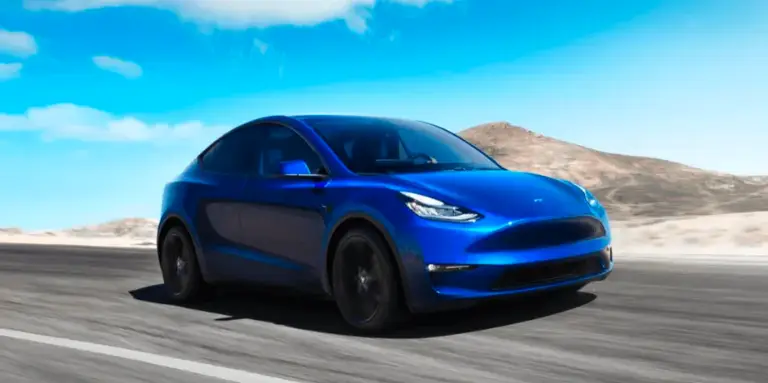
If your business involves frequent long-distance journeys, electric saloons and SUVs offer a comfortable, high-performance alternative to combustion-powered vehicles. With extended range and cutting-edge technology, these models meet the demands of professionals for comfort, space and versatility.
Benefits for professionals on the move
- Extended autonomy : Electric saloons and SUVs now offer ranges of over 500 km, so you can travel long distances without worry.
- Comfort and space : These vehicles offer a spacious and comfortable cabin, ideal for working or relaxing on the move. The silent operation of the electric motors also contributes to a more pleasant driving experience.
- Performance and safety : Electric saloons and SUVs benefit from dynamic performance and advanced safety technologies, ensuring a safe and enjoyable drive.
- Brand image : Opting for a top-of-the-range electric saloon or SUV can reinforce a company's brand image and convey an image of modernity and success.
Examples of popular electric saloons and SUVs
Tips for choosing an electric saloon or SUV
- Determining your needs in terms of autonomy : Choose a model with a range suited to the frequency and distance of your business trips.
- Consider fast charging options : Choose a model that is compatible with fast-charging stations to minimise downtime on long journeys.
- Compare equipment and functions : Choose a model with the options you need for your business (load space, connectivity, driving aids, etc.).
Electric commercial vehicles: a cost-effective alternative for tradesmen
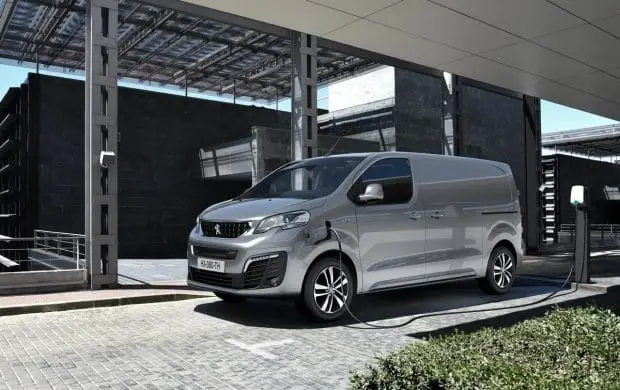
Craftsmen and construction professionals are also benefiting from the transition to electric vehicles. Electric commercial vehicles (ECVs) offer a high-performance, economical alternative to combustion-powered models, while meeting the specific needs of these trades.
Benefits tailored to manual jobs
- Loading capacity : VUEs offer variable load volumes to suit the different needs of tradespeople. Whether you're transporting equipment, tools or goods, there's a VUE to suit every activity.
- Access to restricted urban areas : More and more towns and cities are introducing low-emission zones (LEZs) where access is restricted to the most polluting vehicles. EUVs allow tradespeople to continue to operate in these zones without restriction.
- Lower operating costs: As with other electric vehicles, VUEs benefit from lower running costs than combustion models, thanks to savings on fuel and maintenance.
- Brand image : Using a VUE enables craftspeople to communicate their commitment to the environment and stand out from the competition.
Examples of popular electric utility vehicles
Tips for choosing an electric commercial vehicle
- Determine your needs in terms of load volume and payload.
- Evaluate the level of independence required for daily travel.
- Take into account the recharging options available on the sites and at the depot.
- Compare the equipment and layouts offered by different manufacturers.
Summary table
| Advantage | Description |
|---|---|
| Tax advantages | |
| Exemption from TVS | Significant savings, reducing operating costs. |
| Accelerated depreciation | Depreciation ceiling raised to €30,000 for vehicles emitting less than 20g of CO2/km, allowing a higher tax deduction. |
| Recovery of VAT | 100% will recover VAT on electricity used for recharging (subject to conditions of exclusively professional use). |
| Lower operating costs | |
| Lower energy costs than fuel | Electric charging cheaper than petrol/diesel, offering substantial savings over the long term. |
| Low maintenance | No regular oil changes, fewer moving parts, less wear and tear and less risk of breakdown, so savings on garage bills and less downtime. |
| Grants and subsidies for purchases | Ecological bonuses, conversion bonuses, local grants, etc., reduce the initial cost of acquisition. |
| Ecological assets | |
| Reducing the carbon footprint | No greenhouse gas emissions during use, helping to combat climate change. |
| Improved brand image | The adoption of electric vehicles strengthens the brand's image with customers and partners, demonstrating a commitment to CSR (Corporate Social Responsibility). |
Conclusion
In conclusion, the electrification of vehicle fleets represents a major opportunity for the self-employed and very small businesses. In addition to the environmental benefits, the financial advantages of exemption from VAT, purchase subsidies, reduced operating costs and favourable depreciation make the acquisition of an electric vehicle a strategic and profitable investment.
Whether it's a city car for urban travel, a saloon or SUV for long journeys, or a light commercial vehicle for the tradesman, the market offers a variety of models to suit every need. By optimising their tax situation and choosing the right electric vehicle, businesses can improve their profitability while enhancing their brand image.
Do you want to go electric? Beev can help you make the transition to greener, more sustainable mobility. Whether you're an individual looking for a installation of home charging points or a professional requiring installation of recharging points for professionalswe are simplifying theinstallation of a recharging pointby offering you tailor-made solutions to meet your specific needs. So go ahead, install a charging point and set yourself apart from the competition.
You would like toto electric?
Beev offers multi-brand 100% electric vehicles at the best prices, as well as recharging solutions.
